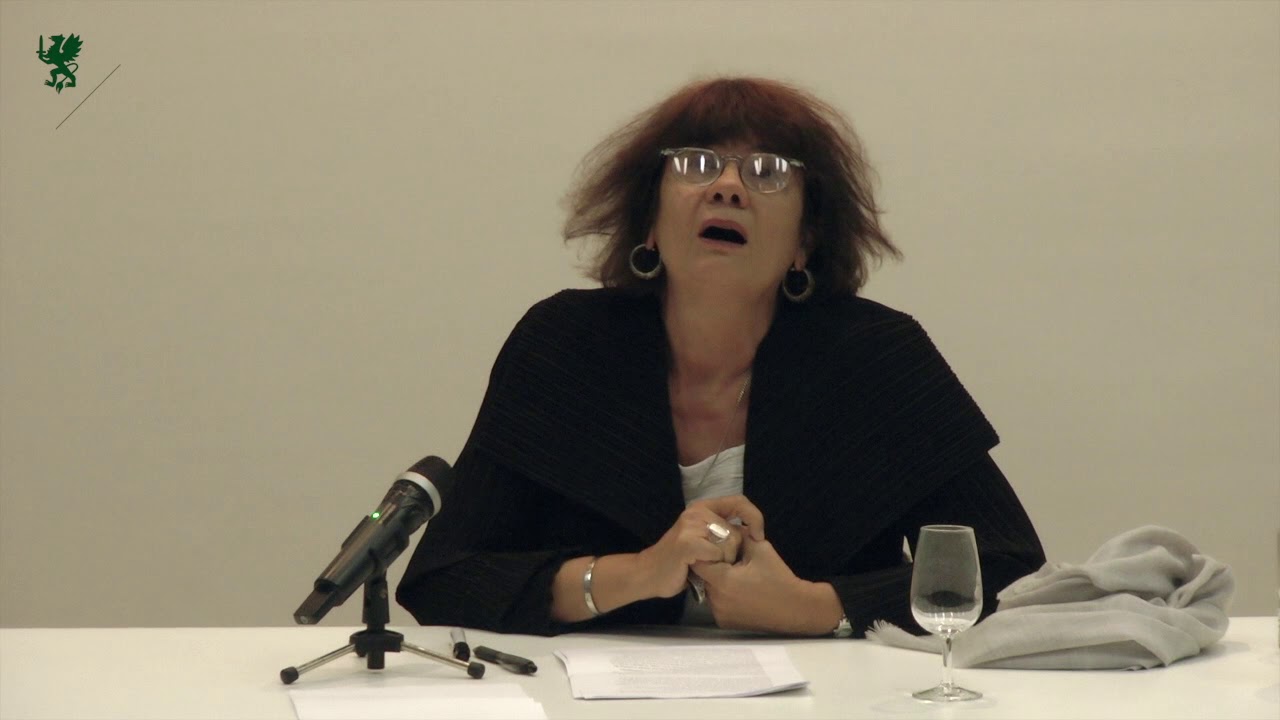http://www.egs.edu Catherine Malabou, Professor of Philosophy at The European Graduate School / EGS. Saas-Fee, Switzerland. August 12 2017. Public open lecture for the students of the Division of Philosophy, Art & Critical Thought.
Catherine Malabou is a French philosopher. She is a professor of philosophy at The European Graduate School / EGS and professor of modern European philosophy at the Centre for Research in Modern European Philosophy (CRMEP) at Kingston University, London. She is known for her work on plasticity, a concept she culled from Hegel’s Phenomenology of Spirit, which has proved fertile within contemporary economic, political, and social discourses. Widely regarded as one of the most exciting figures in what has been called “The New French Philosophy,” Malabou’s research and writing covers a range of figures and issues, including the work of Hegel, Freud, Heidegger, and Derrida; the relationship between philosophy, neuroscience, and psychoanalysis; and concepts of essence and difference within feminism.
Born in Sidi Bel Abbès, Algeria, Catherine Malabou began her advanced studies at the Université Paris-Sorbonne before attending the prestigious École normale supérieure de Fontenay-Saint-Cloud, where, in 1994, she submitted her dissertation on G.W.F. Hegel under the direction of Jacques Derrida. Her thesis was published in 1996 under the title L’avenir de Hegel: Plasticité, temporalité, dialectique (The Future of Hegel: Plasticity, Temporality and Dialectic, 2005) with a long preface by Derrida, whom she would later co-author La Contre-allée (1999; Counterpath, 2004). Before arriving at Kingston University, Malabou became assistant professor at the Université Paris Ouest Nanterre in 1995 and, as a frequent lecturer in the USA, has taught at UC Berkeley, The New School in New York City, New York State University at Buffalo, the University of Wisconsin in Madison, UCLA, Johns Hopkins, and, most recently, UC Irvine.
Catherine Malabou’s philosophical work forges new connections and intellectual networks that imaginatively leap across existing synaptic gaps between, for example, continental philosophy and neuroscience; the philosophy of neuroscience and the critique of capitalism; neuroscience and psychoanalysis; and continental and analytic philosophy (notably Kant). As well, her work is explosive and iconoclastic, shattering perceived understandings of Hegel, feminism and gender, and the implications of post-structuralism.
European Graduate School Video Lectures
Source



